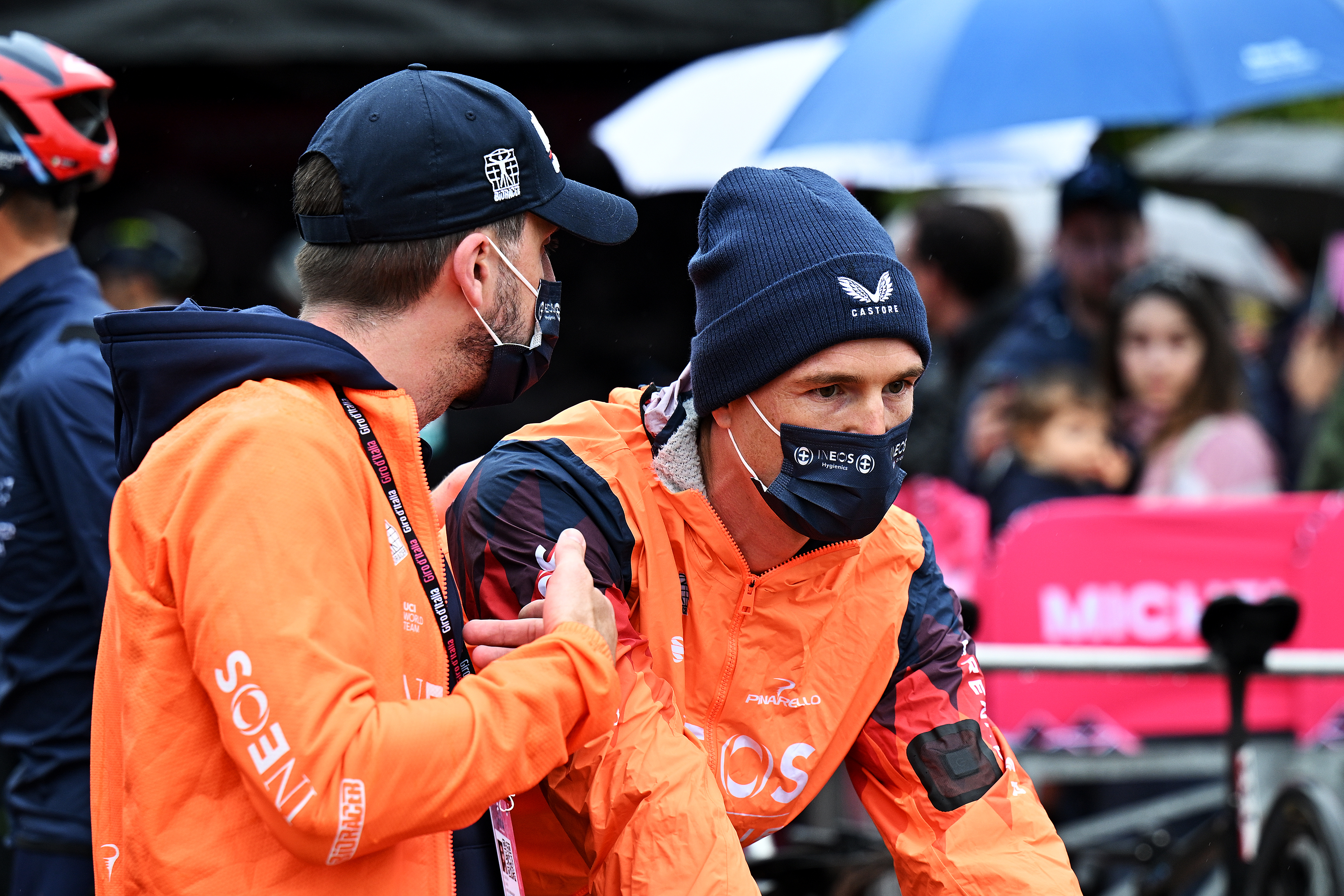
It was not a relaxing first rest day at the Giro d'Italia in Scandiano on Monday. Not for the race organisers, not for the riders, and certainly not for the team staff. There was one story in town, and that story was Covid and its implications.
Just last week, the World Health Organisation declared an end to the global health emergency, but the effects of the virus are still having a significant impact on the Giro peloton. On Sunday evening, the dramatic news that race leader Remco Evenepoel (Soudal Quick-Step) was to leave the race was a huge story for the race, and cycling, and he was not the last rider to leave before stage ten started on Tuesday.
Three more riders pulled out ahead of stage ten: Domenico Pozzovivo (Israel-Premier Tech), Calum Scotson (Jayco AlUla) and Sven Erik Bystrøm (Intermarché-Circus-Wanty), meaning nine riders have now abandoned the Giro due to Covid.
Confusingly, however, there might be more riders who have tested positive at the race and are still racing, as there is no rule that says a positive test means an individual has to go home. Instead, it is entirely at a team's discretion whether the Covid-positive rider goes home or not.
This was the situation Bystrøm found himself caught up in on Monday, with his Intermarché team initially saying he would continue in the race despite having Covid, a decision that was reversed when the Norwegian began to display symptoms overnight.
His team posted on Twitter: "In consultation with our medical staff and the Chief Medical Officer of RCS and UCI following a positive COVID test, and in accordance to the UCI Medical protocol, Sven Erik Bystrøm will continue the Giro d’Italia.
"Sven Erik Bystrøm underwent multiples medical examinations which did not show any symptom nor contraindication to sports practice. Therefore, as recalled by the UCI regulations for asymptomatic cases, he will start stage 10 on Tuesday."
However, by Tuesday morning, Bystrøm became too ill to continue. The Norwegian had previously said: "If everyone with a positive test went home then almost no riders would arrive in Rome."
Last year, riders were able to continue racing at Grand Tours, as was the case of Bob Jungels (then AG2R Citroën) at the Tour de France, if they produced a sufficiently low viral load.
At races this year, there are no explicit rules. The UCI's protocol says that it is no longer mandatory for riders to withdraw from races following a positive test, with decisions taken "in a collegial manner" by doctors from the team, race organisation, and UCI.
This is why the prospect of Bystrøm continuing was floated, while Evenepoel went home. It is up to a team whether their rider continues racing despite having Covid, similar to any other illness; the difference being that Covid is more virulent than a regular cold.
On Monday, race director Mauro Vegni told La Gazzetta dello Sport: “Here at the Giro there have been declared Covid cases, we can't put our hand on the fact that there haven't been others, but maybe they haven't been declared.”
"We must continue to keep our guard up,” he continued. “We will start already from this week. We will restore some restrictions that had been abolished, such as the obligation to wear masks in areas where you come into contact with riders, at the start and finish.”
However, it is still up to teams as to what they do on Covid. Some squads - like Jumbo-Visma, Soudal Quick-Step and Ineos Grenadiers - are testing more regularly and are now more masked up, while others are not.
“I would say it's super sad that Remco [Evenepoel] had to leave the race," former pink jersey wearer Andreas Leknessund (DSM) said. "It’s sad for him but also for the race. I think every team and every rider needs to make decisions. There are race doctors, team doctors, who know how to handle this kind of stuff.
“I think society is taking it pretty good, I think if you're sick and have symptoms, then you should also take action. It's not my responsibility to say too many things about this because I also trust that the doctors are taking the right measurements and I think it's for me, it's okay how it is now.”
It is much like the real world, then, at the Giro, where it is down to personal or group responsibility to test rather than a whole collective. In that way, Covid is just like any other illness, except it is not; research shows how much more damage the virus can do than a common cold, and how much more it spreads. It is an interesting situation, and the impact of Covid has not stopped yet.







